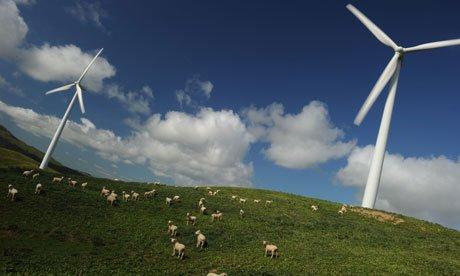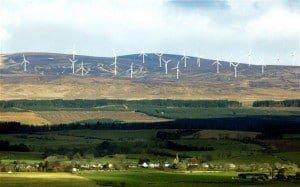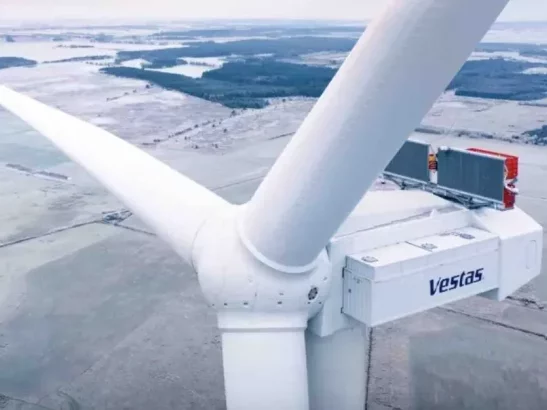The UK coalition government has responded to a growing investment crisis with the country’s offshore wind programme by pulling back on plans to make heavy cuts in subsidies for that power source.
Ed Davey pictured here, the energy secretary, said the measures unveiled on Wednesday would allow £40bn of extra investment in carbon-friendly electricity generation. But the emphasis is definitely on offshore wind power. And what does that mean for the future of large onshore wind farms?
“This package will deliver record levels of investment in green energy by 2020. Our reforms are succeeding in attracting investors from around the world, so Britain can replace our ageing power station and keep the lights on. Investors are queuing up to express their interest in these contracts. This shows that we are providing the certainty they need, our reforms are working and we are delivering ahead of schedule and to plan.”
Davey said that the UK was now on track to double the amount of electricity generated from renewables, from 15% to 30% by 2020, with an expected 10GW of capacity in place generated by offshore wind. But there’s a chill wind blowing through the onshore wind as financial support for onshore wind farms and large-scale solar schemes has been reduced faster than expected.
The cuts were criticised by Labour but the government denied that the move against large scale onshore wind farms was fuelled by pressure from NIMBY conservative and liberal democrat MPs who fear being voted out at the next election in a backlash of ignorance and selfishness by constituents fighting against wind farm development in their areas. This was denied by the Government who said the measures were taken for economic, not political reasons.
Gareth Stace, head of the climate and environment policy at EEF, the manufacturers’ organisation, claimed his members would be very unhappy.
“With energy bills already rising industry will be disappointed that the reduction in subsidies for mature technologies, such as onshore wind, hasn’t translated into a cut in the cost of the overall programme. In particular, the future path for offshore wind strike prices raises the question about existing commitments to drive down their costs.”
The plans were also criticised by the UK opposition Labour for undermining the desperate need for certainty for investors in renewables so soon after previous cuts to financial support for onshore wind farms and solar panels.
Chris Leslie, shadow chief secretary to the Treasury, went on record to say that:
“They’re just chopping and changing all the time – very bad for stable, long-term, investment.”
Numbers of new large onshore wind farms are to be pruned back as subsidies for the giant turbines are strongly opposed by many MPs. Mainly on grounds of “blight” of the countryside. Sources close to the Treasury said “protecting our natural environment” was an important factor in the decision. There we have it.
The Liberal Democrats, supposedly a champion of green technologies said that state support for onshore wind and for solar energy was being reduced “slightly” in favour of offshore wind turbines, but denied that the Coalition had bowed to the strength of opposition to wind farms among Conservative backbenchers, who argue they are unsightly and inefficient. With an election soon is that a genuine sentiment or political expediency?
The development of onshore wind farms has for long times been a major source of tension between the Coalition parties. The Liberal Democrats argue that land-based turbines, which are far cheaper to develop than those at sea, are crucial for Britain to hit its targets for renewable energy use.
And lest we forget, the UK Independence Party has also said it would scrap subsidies for wind farms. A vote for them would appear to be a vote for carbon.
Sarah Johnson, the head of renewables at the National Skills Academy for Power, said:
”It is disappointing to see the Government’s lack of commitment for onshore, which is an established technology with a track history that investors can rely on.“
Shaun Spiers, the chief executive of the Campaign to Protect Rural England, said:
”Any slow-down in the rate of growth of on-shore wind is good news. People are fed up with having such things forced on them.“
Forced on them? People have a choice via local democracy. What about having carbon and nuclear power forced on them?
Sometimes one despairs that the vagaries of politics and point-scoring in the UK are more important than a clear vision of a renewable future for a wind-rich country.





